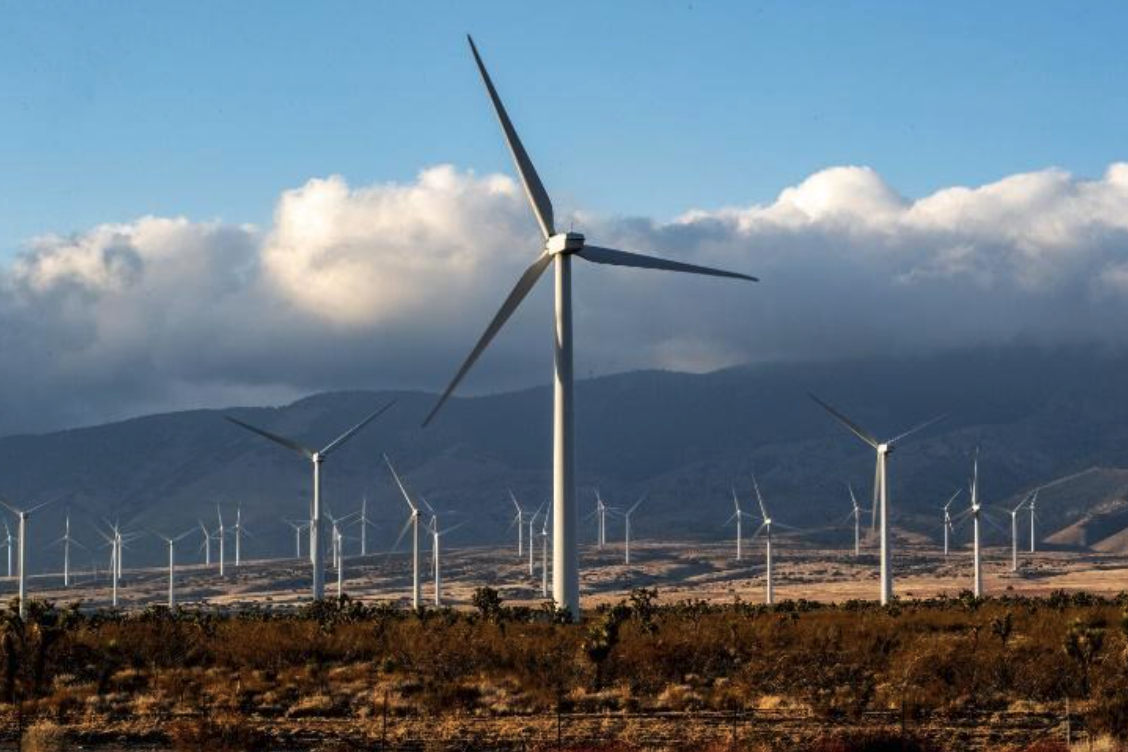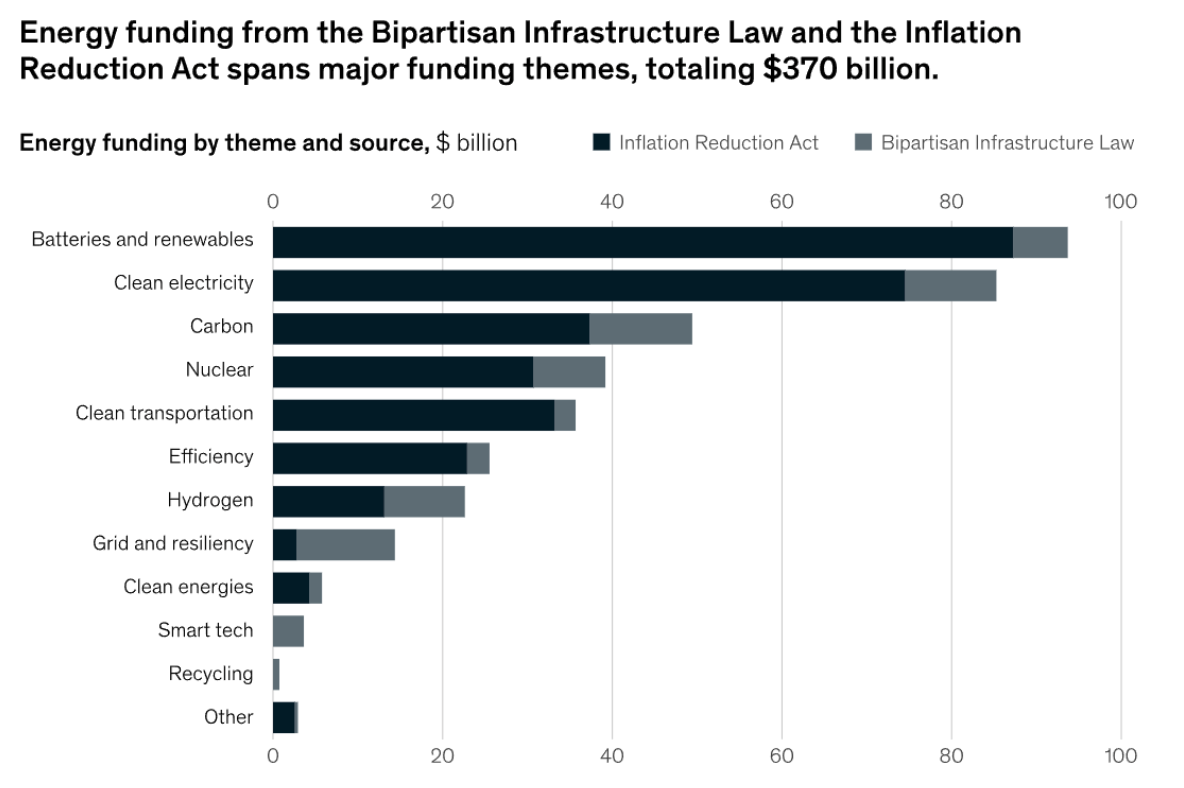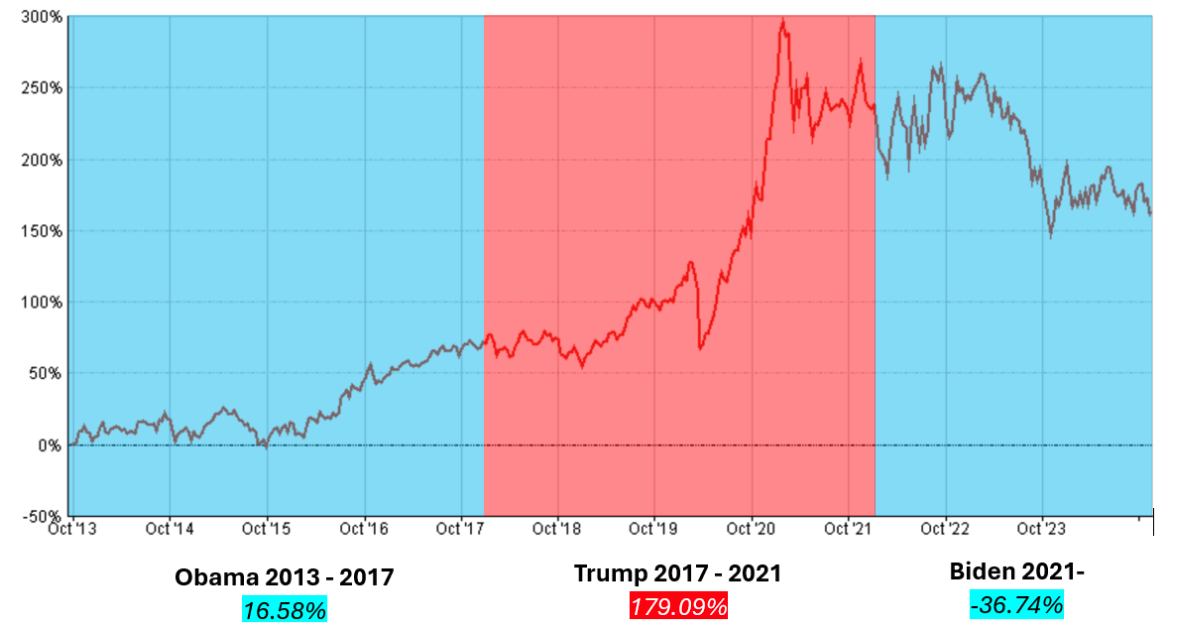Donald Trump has won the Whitehouse, and the Republicans have flipped the Senate, giving the GOP a clean sweep of the US congress and executive and a clear run to enact their policy plans. So what are the repercussions for sustainable energy now?
Trump has been highly critical of the Inflation Reduction Act (IRA) - the key piece of legislation driving billions into clean energy, domestic manufacturing, and the low-carbon economy - terming it the “Green New Scam, greatest scam in history, probably” , which has many in both renewable energy and climate finance fretting over the future of the initiative and the wider energy transition in the US.

Signed into law in August 2022 by President Biden, the Inflation Reduction Act (IRA) represents the most ambitious U.S. effort to hypercharge the renewable energy sector ever. Recent figures tracking its investment indicate its early (and substantial) success, with nearly half a trillion dollars invested since its introduction.
Earlier this year, the World Economic Forum highlighted that the IRA had directly generated over 170,000 new jobs and projected that it could lead to the creation of over nine million jobs across the next decade. The act is also expected to catalyse up to $3 trillion in additional investments, underscoring its significant impact on economic growth and green energy development in the United States.
By incentivising substantial private credit, the IRA’s tax-credit-linked opportunities are at the scale to be transformative to the clean energy and technology sectors.

Graph 1: IRA energy funding by theme and source, credit: McKinsey & Co.

Given Trump’s long track record of climate change scepticism – which he has repeatedly called a “hoax” – as well as his widespread support for fossil fuels, it’s worth examining concerns he may attempt to dismantle the key piece of legislation once in office.
The President Elect’s previous administration turned back on numerous US environmental protections, which included withdrawing the U.S. from the Paris Climate Agreement, promoting deregulation to enhance coal, oil, and gas production, and prioritising the approval of new fossil fuel projects over renewable energy development. This time around, Trump's rhetoric would surely suggest the renewable energy sector is in his sights again.
However, while Trump is free to attack the IRA rhetorically, experts judge that dismantling in real life it will be easier said than done. For one: the Act’s creators designed the legislation to be somewhat Trump-proof, with durability in mind.
Furthermore, the Act has been incredibly successful in funnelling money into US industry and creating jobs for American people – with a lot of those benefits going into Red-leaning states. Morgan Stanley reports that 80% of all US clean energy projects valued over $1 billion are located in Republican-led Congressional districts, generating between 150,000 and 300,000 jobs since the passage of the IRA. Additionally, according to Bloomberg, $110 billion out of the $113 billion invested by the IRA in renewable energy and electric vehicle factories has gone to Republican and traditional swing states.
This represents a significant level support for US domestic manufacturing and the revitalisation of American local communities—issues deeply aligned with GOP’s core values. Rolling it back would seem to contradict the party's broader agenda to bolster domestic industry, strengthen the national economy, and diminish reliance on foreign powers like China, particularly in critical sectors such as energy infrastructure. Surely a step too far for all but the most dogmatic of Trump supporters.
The truth is, even with a Republican clean sweep of the Whitehouse and Congress, modifications to IRA provisions are far more probable than a major repeal.
Under a Trump administration, a key priority will be the extension of the tax cuts from the 2017 Tax Cuts and Jobs Act that are set to expire at the end of 2025. Any potential changes to the IRA should be considered in the context of funding those cuts.
Climate funding that has not been contracted could potentially be paused, including EV incentives and offshore wind permits not yet approved. Importantly, tax increases under Republican administrations have historically tended to be prospective rather than retroactive, meaning existing projects could still be grandfathered in retaining current IRA tax credits.
We can expect increased backing for fossil fuels and substantial reductions to environmental regulations. However, many states and local entities may persist in advancing renewable energy and climate initiatives, regardless of federal actions. Historically, the growth of renewable stocks has been driven more by favourable or unfavourable macroeconomic conditions than by the presidential administration in power, as this graph shows.

Graph 2: Solactive Clean Energy Index Returns under Democrat and Republican administrations
Likely, yes. Despite valid concerns, the current political landscape and the IRA's design make it a bit of a red herring to suggest that a Republican administration would be fatal for the Act.
While the IRA may face changes, its structure and bipartisan benefits make outright repeal unlikely—a perspective we closely monitor to help guide our clients' decisions. In August, 18 House Republicans signed a letter to Speaker Mike Johnson urging him not to repeal IRA credits, warning that to do so could undermine private investments and ongoing development, noting, “A full repeal would create a worst-case scenario where we would have spent billions of taxpayer dollars and received next to nothing in return.”
The fact these noises have been coming from within the Republican party itself illustrates the complex interests protecting in the IRA. While we at Harmonic have obviously been monitoring the situation and tracking the potential risks, we believe it will not be and cannot be as dire as some think.
With uncertain markets, significant political developments, and shifts in sustainable finance, staying informed has never been more critical. Changes like these can profoundly impact investment strategies, making it essential to stay abreast of new regulations and market dynamics. Harmonic FP can help you navigate these complexities and make informed decisions. For further insights into UK developments, including the introduction of fund labels, check out our article , "New anti-greenwashing labels for UK funds are one step forward, one step back."
If you’d like to explore what these potential shifts mean for your portfolio—or discuss strategies to align your investments with your sustainable values—get in touch with our London team John Ditchfield and Max Chan.
We'd welcome an initial discussion, and a first appointment can be booked using the links below.
If you require advice based on specific circumstances, contact our professional advisors.